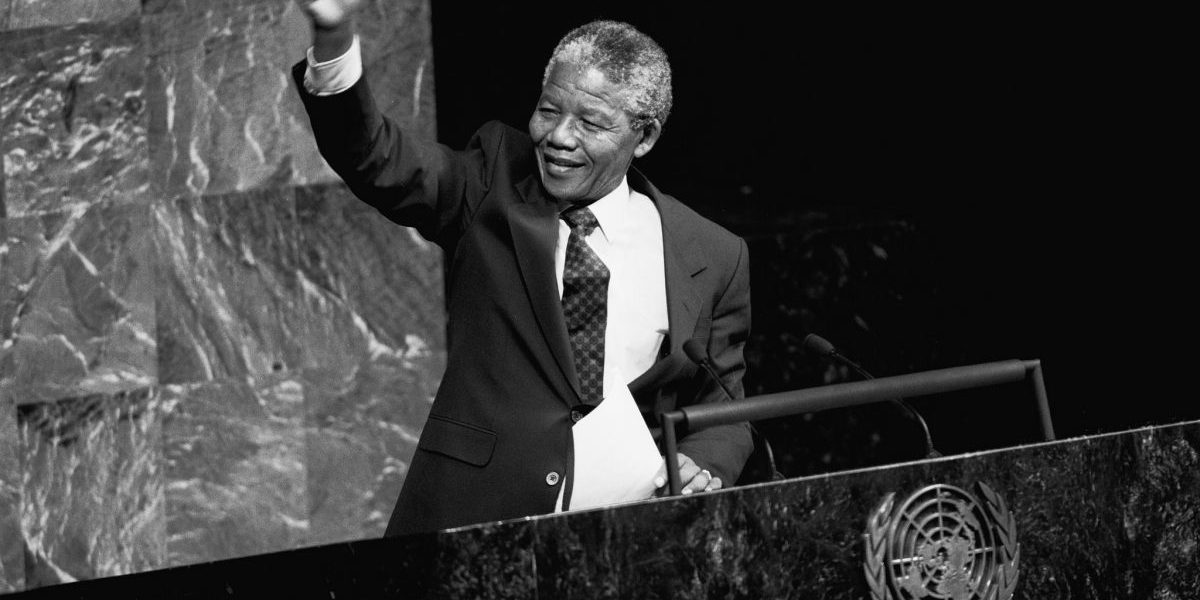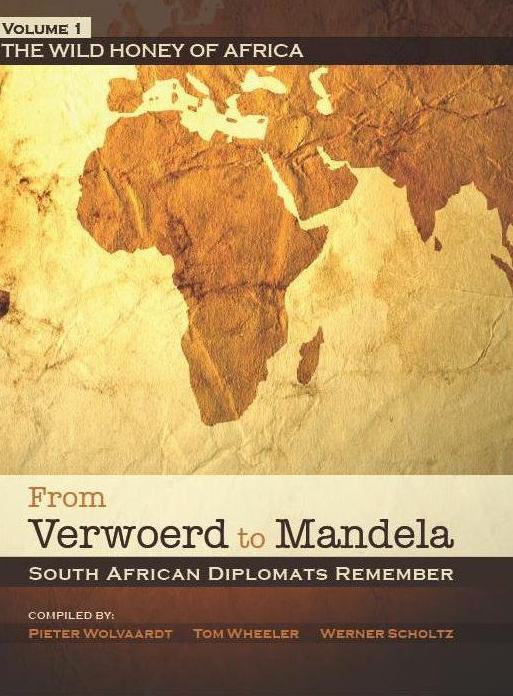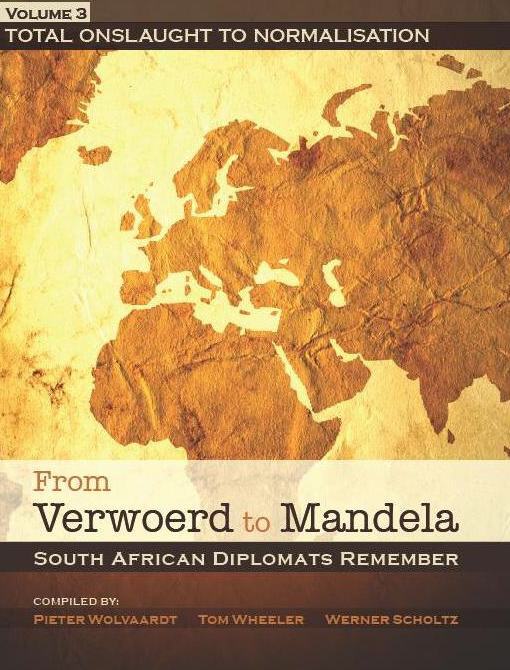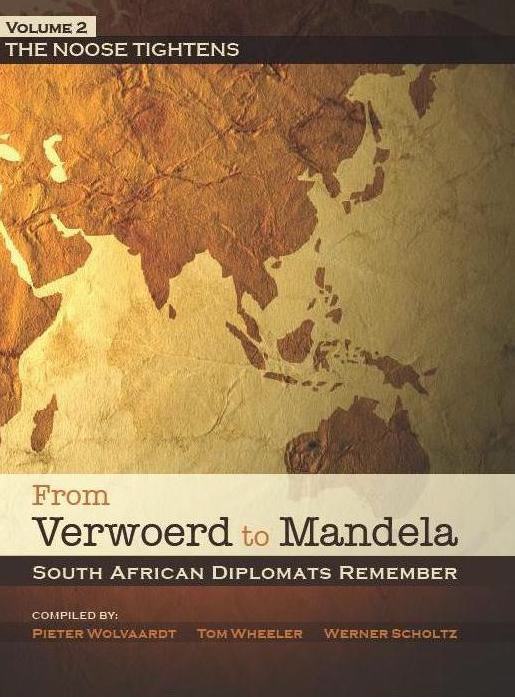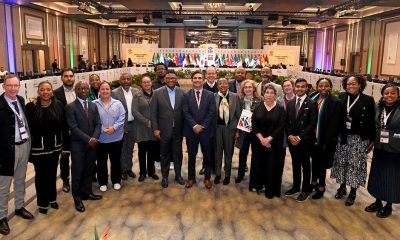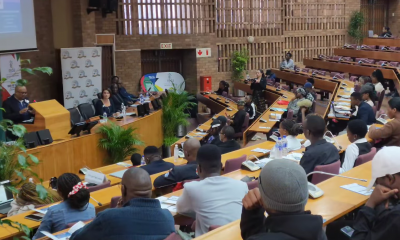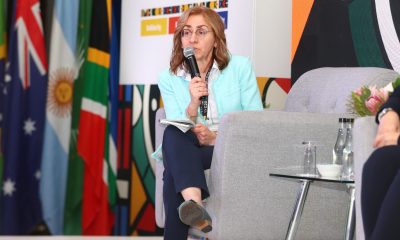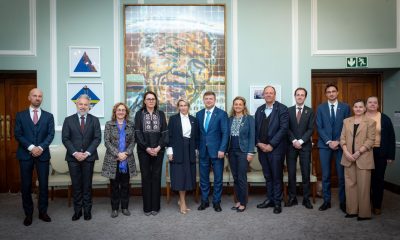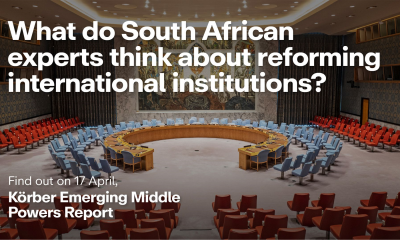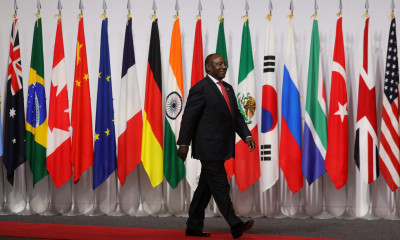But a new publication, published by Crink with the partial financial assistance of the Brenhurst Foundation and the South African Institute of International Affairs, sheds new light on the tumultuous political and personal stories of many diplomats who served under apartheid and who continued beyond South Africa’s transition to democracy.
From Verwoerd to Mandela: South African Diplomats Remember lifts the lid on South Africa’s unconventional diplomacy employed during the 1960’s, at the height of the clampdown on the anti-apartheid movement. It takes the reader on a journey that culminates in the 1990’s when many diplomats had to “keep the conversation going” with the men and women who would eventually lead the democratic South Africa.
The three volumes dispel the notion of a foreign service with little experience in conducting international relations in the conventional sense. The books also illustrate the ingenuity and determination it took to represent South Africa despite the efforts of critics, at home and abroad, who undermined their work.
From Verwoerd to Mandela weaves the serious facts with personal recollections and anecdotes that give a “human face” to South African diplomacy.
About the Books:
Volume 1: Few outsiders knew how much contact and positive co-operation was established in Africa long before the demise of apartheid. The first book deals with the foreign affairs department’s engagement with a number of these countries such as Angola, Swaziland, Zimbabwe, Malawi, Equatorial Guinea, Somalia and Zambia. It also looks at what was known as the ‘TBVC ‘countries’ – the former independent homelands of Transkei, Bophuthatswana, Venda and Ciskei. It traces the long road to independence for Namibia through vividly described stories by the officials involved. This probably provides the fullest possible account of that process to date.
Volume 2: Tackles various events in Australasia, Taiwan and the People’s Republic of China, Japan, Israel, Pakistan and several Latin American countries. These chapters are interspersed with contributions dealing with the experiences of those officials stationed at the foreign affairs head office in the Union Buildings in Pretoria during the 1960s. Spouses and children also contribute through sharing their experiences. The volume ends with the tragic kidnapping and death of Ambassador Eddie Dunn in El Salvador, the only South African diplomat to die violently in the line of duty.
Volume 3: Recounts various relations and interactions with Europe and the United State of America, the multilateral engagement and nuclear armament. Buzz words like ‘total onslaught’, ‘crossing the Rubicon’ and ‘Troika’ are explained. It’s unpacks the issues around various bodies such as the State Security Council, the Eminent Persons Group and the Transitional Executive Council. Spies, unconventional diplomacy and sanctions; Volume 3 pulls together the frustration, hope and the transition to democracy.
Interesting aspects that emerge from the book:
- The inside story of the negotiations leading to Namibia’s independence and the withdrawal of Cuban troops from Angola.
- The full story of the abduction of Ambassador Eddie Dunn in El Salvador, the attempts to obtain his release and his death.
- The back-ups of documents from the World Trade Center in New York that were stored in a company in New Jersey, a front to assist South Africa in evading international sanctions.
- The South African representative in the Swazi capital, Mbabane, wrote the speech Swaziland delivered at the United Nations Security Council to condemn a South African raid into their country by the South African Defence Force (SADF).
- South African diplomats were visiting Moscow for consultations with Soviet officials during the height of the cold war and the SADF’s ‘total strategy’ policy.
- An envoy from the president of Nigeria visited John Vorster at his residence in Oubos, in the Eastern Cape, in 1975.
- South African diplomats stationed in Malawi in the 1970s were forbidden from dancing, because they might have had to dance with black partners.
- South Africa planned to finance a free trade zone in Turkey, but the events of 1990 put paid to the idea.
- An East German agent attempted to ship top of the range computers with military application from Stellenbosch to Leningrad, only to be foiled by the Swedish customs.
- Libya supplied oil to apartheid South Africa.
- As Deputy President, Thabo Mbeki adopted – in its entirety – the apartheid government’s policy document for developing relations with Russia.
- A South African-owned front company even-handedly supplied provisions to the Soviet merchant navy and to NATO commissaries.
- South Africa considered ‘buying’ another country as a conduit to export its products.
From Verwoerd to Mandela: South African Diplomats Remember is available in South Africa at Exclusive Books and other bookshops. Order online through from www.crink.co.za or enquire at +27 (0) 21 929 2737.
International orders can be placed through www.crink.co.za or direct.sales@onthedot.co.za or +27-86-166-8368.
Recommended retail price: ZAR 250 each for volumes 1 and 2, ZAR 300 for volume 3.
E-books will soon be available from Kalahari.net at a recommended price of ZAR 100 per volume.

